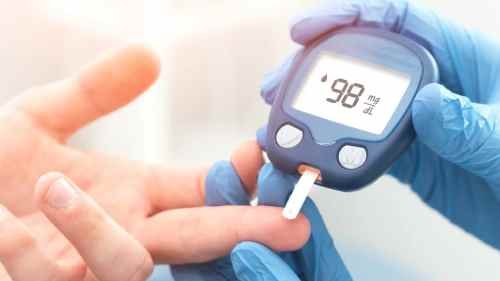Diabetes is a long-term ailment that hinders the body’s capacity to manage blood glucose levels, or blood sugar. There are multiple forms, such as type 1, type 2, and gestational diabetes, each with different treatment options.
Without continuous, diligent management, diabetes may result in glucose accumulation in the bloodstream, raising the likelihood of serious complications, such as stroke and heart disease.
The primary forms of diabetes are type 1, type 2, and gestational diabetes, which we will discuss further below.
Type 1 Diabetes
Commonly referred to as juvenile diabetes, type 1 diabetes arises when the body fails to produce insulin.
Insulin is a hormone that helps to metabolize the sugar in the bloodstream for utilization by the body. An individual with type 1 diabetes might be diagnosed during their childhood.
Individuals with type 1 diabetes must consistently administer insulin. People can achieve this through injections or an insulin pump.
There is no remedy for type 1 diabetes. After receiving a diagnosis, an individual must consistently check their blood sugar levels, take insulin, and adhere to certain lifestyle strategies to effectively manage the condition.
Also read: Check out some great diets to keep a healthy heart!
Type 2 Diabetes
In type 2 diabetes, the body fails to produce or utilize insulin properly.
As stated by the National Institute of Diabetes and Digestive and Kidney Diseases (NIDDK)Trusted Source, type 2 diabetes is the most prevalent type. It is closely connected to obesity.
An individual with type 2 diabetes might require insulin or might not. In several situations, medication, combined with exercise and dietary approaches, can assist in managing the condition.
Type 2 diabetes can develop in anyone, whether they are children or adults.
Cure for Diabetes
In type 1 diabetes, the immune system attacks and destroys the insulin-producing beta cells of the pancreas. This indicates that you are unable to produce the insulin necessary for survival.
To prevent type 1 diabetes, we must interfere with the immune system’s assault on beta cells. Our scientists are currently addressing it. They aim to create and assess treatments – referred to as immunotherapies – that focus on the immune system to prevent it from damaging beta cells.
Our ground-breaking study is called DiRECT, short for Diabetes Remission Clinical Trial, and it could completely change the way type 2 diabetes is treated in the future.
(With inputs from various websites)














